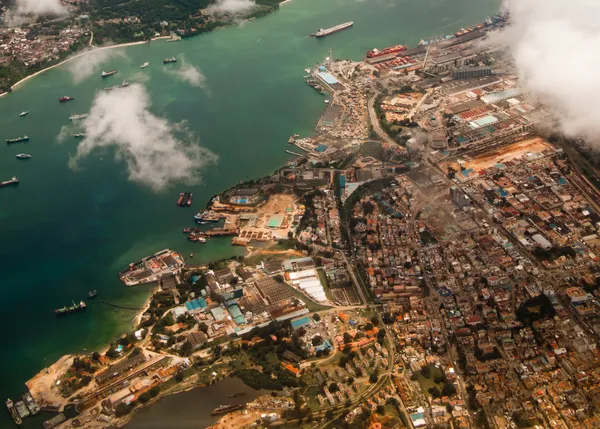Acrow Bridge, an international bridge engineering and supply company, announced that it will start by the end of the year on a 144-bridge infrastructure project in Zambia.
The work will be carried out exclusively by Zambian engineers, technicians and contractors who will be trained in the field by Acrow technicians on the assembly and installation of the bridges. Acrow said it is working with the Road Development Agency of the Republic of Zambia.
August 11, 2015
Read time: 2 mins
Acrow Bridge, an international bridge engineering and supply company, announced that it will start by the end of the year on a 144-bridge infrastructure project in Zambia.
The work will be carried out exclusively by Zambian engineers, technicians and contractors who will be trained in the field by Acrow technicians on the assembly and installation of the bridges. Acrow said it is working with the Road Development Agency of the Republic of Zambia.
Acrow Bridge, based just outside New York City, designs, manufactures and supplies prefabricated modular steel bridges for road and rail use and has sales in more than 20 African countries.
“Our partnership with the Zambian government will provide the country’s citizens and businesses with strong and durable bridges, made of American steel and manufactured in the United States to the finest international quality standards,” said Bill Killeen, president and chief executive of Acrow.
“Acrow Bridges are designed to be environmentally sensitive through the manufacturing processes and through the service life of 75 years or more by not needing to be refinished during that time.”
Earlier reports had the deal worth more than US$80 million.
The1290 Export-Import Bank of the United States is financing the Acrow Bridge development programme through loan guarantees to the Road Development Agency of the Republic of Zambia.
In July, Paul Sullivan, vice president of international business development at Acrow, was appointed a member of the US government’s Trade Advisory Committee on Africa. The Trade Advisory Committee provides advice to the Office of the United States Trade Representative on developing US trade policy throughout sub-Saharan Africa.
US president Barack Obama visited Zambia last month as part of an African tour. While in Zambia, he spoke during the 6th Global Entrepreneurship Summit at the UN headquarters in Gigiri, an event which he co-hosted with Zambian president Uhuru Kenyatta.
The work will be carried out exclusively by Zambian engineers, technicians and contractors who will be trained in the field by Acrow technicians on the assembly and installation of the bridges. Acrow said it is working with the Road Development Agency of the Republic of Zambia.
Acrow Bridge, based just outside New York City, designs, manufactures and supplies prefabricated modular steel bridges for road and rail use and has sales in more than 20 African countries.
“Our partnership with the Zambian government will provide the country’s citizens and businesses with strong and durable bridges, made of American steel and manufactured in the United States to the finest international quality standards,” said Bill Killeen, president and chief executive of Acrow.
“Acrow Bridges are designed to be environmentally sensitive through the manufacturing processes and through the service life of 75 years or more by not needing to be refinished during that time.”
Earlier reports had the deal worth more than US$80 million.
The
In July, Paul Sullivan, vice president of international business development at Acrow, was appointed a member of the US government’s Trade Advisory Committee on Africa. The Trade Advisory Committee provides advice to the Office of the United States Trade Representative on developing US trade policy throughout sub-Saharan Africa.
US president Barack Obama visited Zambia last month as part of an African tour. While in Zambia, he spoke during the 6th Global Entrepreneurship Summit at the UN headquarters in Gigiri, an event which he co-hosted with Zambian president Uhuru Kenyatta.









